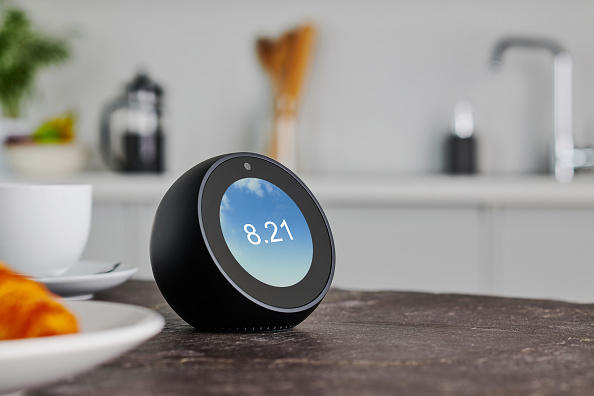Virtual assistants are quickly becoming a part of every day life. Although only 27 percent of people currently own a device like Amazon’s Alexa or Google Home, their popularity is growing, according to research from Clutch. Virtual assistants can play music, provide news updates, track information, and more, so it’s not hard to see why people are flocking to them. But, is the privacy trade-off that comes this new, burgeoning technology too steep?
Companies like Amazon and Google — who currently dominate the virtual assistant market — assure users that their devices aren’t spying on them. Virtual assistants are designed to answer to a specific wake word, like “Hey, Alexa,” and are only supposed to store information if you speak to them directly. However, privacy mishaps have shown that it’s not as simple as companies want you to think.
Right now, Amazon beats out Google as the most popular virtual assistant brand. Clutch reported that 66 percent of people who own a virtual assistant have an Amazon device. Although Amazon is a popular choice, its virtual assistant has been the subject of quite a few privacy issues. In December of last year, an Amazon Echo user in Germany received 1,700 voice recordings of another user by mistake after filing a data request.
Then, in May of that same year, a Portland woman said that her Amazon Echo recorded a private conversation between her and her husband, then sent it to an acquaintance. Amazon told Recode that the device mixed up background noise as a cue to wake up, then proceeded to interpret the conversation as commands.
There are also valid concerns around what devices like Amazon’s Echo and Google Home do with the information they store. Earlier this year Time reported that Amazon workers listen in on Alexa conversations. The workers transcribe and annotate what they hear before feeding it back into the software as a way to help Alexa better understand human speech.
“You don’t necessarily think of another human listening to what you’re telling your smart speaker in the intimacy of your home,” Florian Schaub, a professor at the University of Michigan, told Time. “I think we’ve been conditioned to the [assumption] that these machines are just doing magic machine learning. But the fact is there is still manual processing involved.”
In addition, the information that virtual assistants gather from you may be used to help develop marketing campaigns. It’s no secret that Google’s advertising is run by users’ online preferences and behaviors, or that Amazon generally uses targeted ads. Now, some are concerned about the possibility of Amazon developing Alexa-based ads.
None of that may seem like a big deal since your information is collected in various other ways already, but there’s also the issue with getting virtual assistants to let go of data they collect. That’s especially important when it comes to kids. In May, advocacy groups claimed that Amazon’s Echo Dot Kids violated the Children’s Online Privacy Protection Act by recording and storing kids’ conversations. In a complaint submitted to the Federal Trade Commission, the groups wrote:
“The Echo Dot Kids Edition has the capacity to collect vast amounts of sensitive, personal information from children age 13. For example, voice recordings of children are considered personal information under COPPA. The Echo Dot Kids Edition records children’s voices any time it hears the wake word, and it stores these recordings in the cloud unless or until a parent deletes them.”
The reality of virtual assistants is that you’re essentially allowing Amazon and Google into your home at all times. Although both companies try to market themselves as endearing, you have to remember that they are still corporations with their own interests.
Privacy isn’t a zero-sum game. We all make trade-offs in our day to day life. Many people still use Facebook, despite knowing about its numerous scandals, from Cambridge Analytica to storing millions of passwords in plain text, and Gmail — even though it tracks your purchases through your account.
People use Apple’s newest iPhones even though it allows your phone to scan your face, and a lot of people don’t bother turning off location tracking on their phones.
Just about every device you use comes with a compromise to your privacy. When you use platforms or bring smart devices into your home, it’s at least important to be aware of the trade that you’re making.

